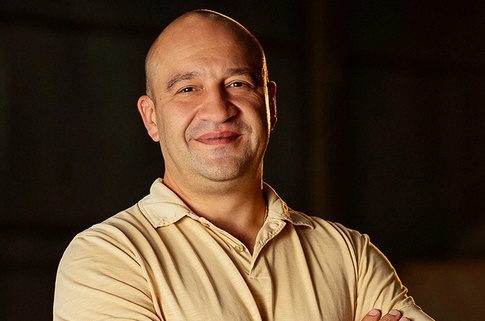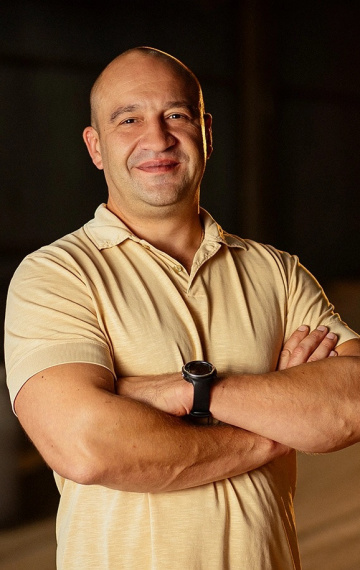
One winter day, farmer Andriy Turchyn woke up to calls from his friends. They said something he found hard to believe – the war started. Turchyn quickly checked the news and discovered that Russia invaded Ukraine.
While many people fled the country in search of safety for their families, Turchyn stayed back.
“Everything I have ever achieved is here. Nobody is waiting for me elsewhere,” he says. “We were worried about what was going to happen, but continued working.”
What Turchyn couldn’t leave behind is his family’s farming business Lisova Polyana (meaning Forest Meadow).
When his father started farming, Andriy Turchyn was working as a lawyer in Kyiv, set for a successful career in the corporate world. Back then, farming was neither competitive nor financially appealing. Despite challenges, the family didn’t give up and continued to work harder and harder each year.
In 2013, Andriy Turchyn, who always wanted to create something of his own, finally left the legal sector and joined his father and brother in farming.
“It was very difficult at first. But we started to recruit more hard-working employees, took out credits to buy modern machines, and expand the business,” Turchyn explains.
Throughout the years, their focus has changed from grain to sunflowers and soybeans due to climate change in the Lviv region and market demands in the country. The family also cultivates corn and wheat. They employ up to 15 locals year-round and have seasonal workers join them when needed.
While expanding the business, the family rarely had extra money in the budget for unexpected costs. And then, this year, a major unexpected crisis hit the country after Russia’s full-scale invasion. Like millions of others in Ukraine, Andriy Turchyn and his family struggled to get by.
“The inflation was on the rise, Odessa ports were closed, and our farming expenses significantly increased. Many financial assistance programmes were frozen. Meanwhile, what people needed most was money,” Turchyn explained, saying the price of wheat fell, but its storing costs increased.
The family was actively looking for a solution to save the farming business amid the war. At this critical juncture, Lisova Polyan a got a grant under the Additional Component of FinancEast Programme for the resumption of financing of small and medium-sized enterprises in the controlled areas of Donetsk and Luhansk regions. The European Union, through the German Development Bank KfW, provides financial support in the form of subsidies and compensations.
“For us, the money came when we most needed it,” Turchyn confesses, saying the family used it to take care of the farm and cover high expenses.
When the war started, Turchyn decided to stay in Ukraine and hasn’t changed his mind since then.
“Work, work and work. That’s our plan for the future,” he says, noting they don’t have all the equipment they need to expand the farming business, such as a dryer and a combine harvester – machines necessary to store the harvest and maintain its quality.
But Turchyn is hopeful for the future and thinks farming is more important than ever to not only produce food for the country’s population, but provide means for people to stay here.
“We are farmers. Time demands patience and perseverance from us. We must instill in people the desire to work here, on the Ukrainian soil. So that they can earn decently and not have to go abroad. And then we will definitely win,” said Turchyn earlier this year in an interview with the Bank of Lviv.
***
The FinancEast programme was developed within the framework of the Agreement between the Government of Ukraine and the EU "Support of the European Union for the East of Ukraine" and the EU4Business initiative.
Representatives of KfW approached the EU with a proposal to introduce an Additional Component of the programme and redirect money to support farmers from the western regions of Ukraine. JSC AKB "Lviv" became the financial institution partner of the additional component of the FinancEast programme.

